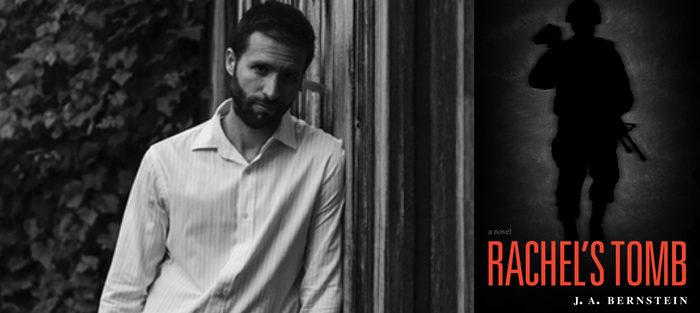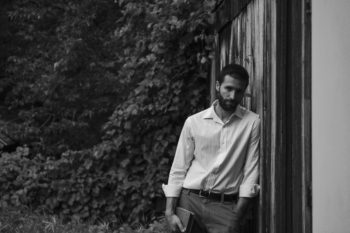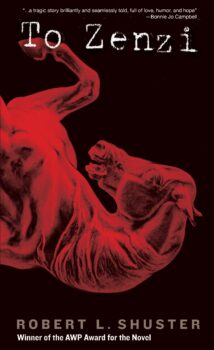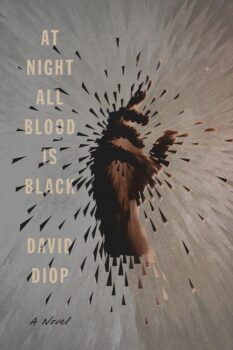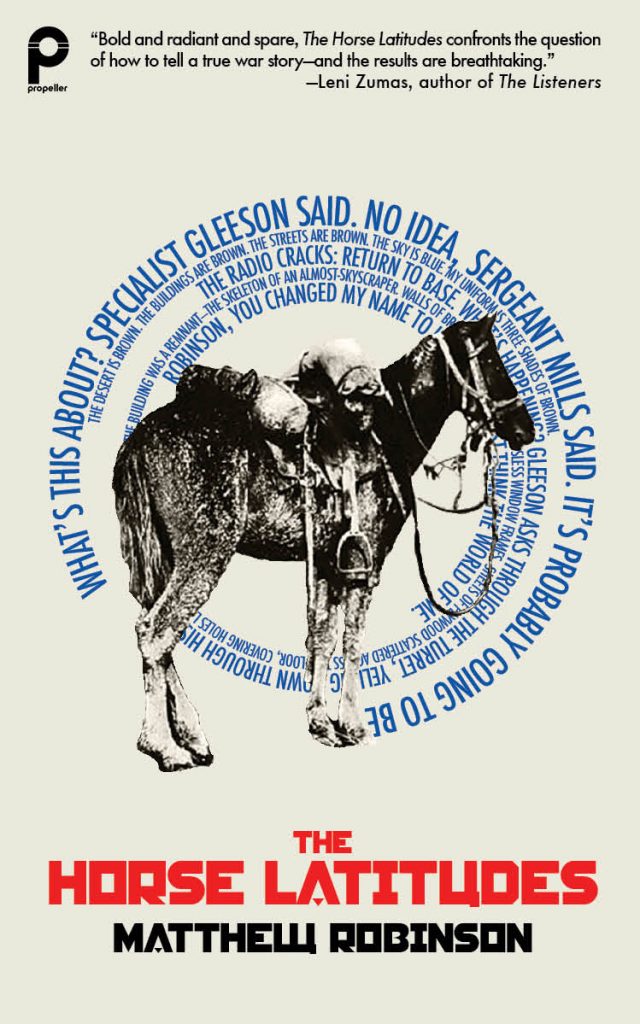Like his literary forebear T. E. Lawrence, J. A. Bernstein (Josh to his friends) came to the Middle East from cooler climes, although the Old Town Chicago of his childhood was likely more pleasant than the dank, 19th-century Scotland Lawrence endured as a boy. Josh and I met as doctoral students in USC’s Creative Writing & Literature Program, both Midwestern expats in Los Angeles, equally stupefied by the Edenic weather and the locals’ Edenic lack of irony.
Josh and I lived blocks apart in Long Beach, where during the days we commuted together up the 710 and at night drank large glasses of cheap beer and talked God, politics, family, California, and, most of all, writing, in a form that was half-Charlie Rose, half-Mystery Science Theater 3000. Josh was and is a wonderful interlocutor, perhaps the kindest cynic I’ve ever met, and certainly the funniest Marxist. Those conversations are some of my most cherished memories of my time in L.A. All the while Josh was plugging away at the novel that became Rachel’s Tomb, a novel he was uniquely qualified to write as a worker for a Palestinian human rights organization who later joined the Israeli Army. Josh’s Lawrentian adventures in Palestine constitute, if not the plot of the book, its wild and bifurcated heart. The novel follows a platoon of Israeli soldiers deployed during the Second Intifada at Rachel’s Tomb, the shrine of the biblical matriarch, in Bethlehem, inside the West Bank. When protests around the tomb turn deadly, a spiraling cycle of violence ensues, culminating in the deaths of soldiers and civilians.
Recently, we sat down to talk about the novel, the conflict, and the region at large, which took place in the Midwest rather than the Mideast, at Chicago’s Purple Pig, over a delicious bottle of Sicilian wine. Josh was visiting from Hattiesburg, Mississippi, where he is an assistant professor of English in the Center for Writers at the University of Southern Mississippi. Rachel’s Tomb (New Issues), his first novel, won the A.W.P. Award Series and Hackney Prizes, and his chapbook, Desert Castles, won the Wilhelmus Prize at Southern Indiana Review.
Interview:
Michael Reid Busk: It seems to me that the structure of the book is that it moves outward in a spiral fashion from two deaths, which are the central moments of the action. As you were structuring and editing, are those two events what you wanted to anchor the book?
J. A. Bernstein: I didn’t really know what I was doing when I started the book, and I learned a lot about the characters as they came to life on the page. Early on, I knew that one of the main characters had to die, and he’s partly based on a real person who did die. But I had to do a lot of restructuring to make it work.
I read a bunch of war novels before I wrote this: Mailer’s The Naked and The Dead, James Jones’s A Thin Red Line, Tim O’Brien, Tobias Wolff. And the weird thing about these novels is that I kept seeing the archetypes of all these people I knew in the army, which was so strange because they were coming from such different places. That led me to think that in some way all soldiers are essentially the same. I know the point of fiction is supposed to be to differentiate characters, but one thing you notice about the army is that the experiences one person has are often very similar to the experiences other people have, and I tried to write the novel in a way that speaks to that.
I would guess that ninety-five percent of war novels are written about officers, because they would seem to have more agency. Enlisted men make very few choices. Maybe they have a choice to pull a trigger once or twice, or to sign up in the first place, but other than that, their lives are mainly dictated. I think that none of the characters in my novel has real agency, and they each come to realize that by the end, though in different ways.
To me, it seemed like the scene of two conscripted Israeli soldiers, Boaz and Ivan, commandeering a truck at the end of the novel was them bucking against that feeling, and because of that, I found myself rooting for them, even though what they’re doing is insane, even though it probably won’t do any real good for anyone.
I believe nearly all soldiers and officers in armies do horrible things at certain points, but they do it as a way to gain control in a world in which they have no control. I’m not saying that’s a good thing. I’m not trying to justify their actions. But I think it’s part of the job of the novel to understand how people feel trapped in their environments and what small releases they find.
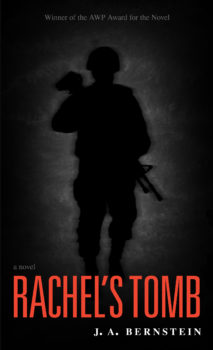 It’s also so easy to forget how young the characters in the novel are.
It’s also so easy to forget how young the characters in the novel are.
All of the main characters in the novel are kids, and it’s hard to make them interesting for readers who are older than twenty-two. But I think it’s an interesting age to write about, because their hormones are surging, and they don’t really understand the stakes of their decisions. One of the cruelest aspects of the army is that it takes young men and women who have very little perspective on life, and are rarely mature enough to make important decisions, and it gives them guns. I’m not old enough at forty to make those decisions, and I certainly wouldn’t have been at eighteen, fresh out of high school. But I don’t want to hold the soldiers blameless, either. We make choices in life, and I want to believe those choices matter. I think no one would accept a world in which we’re just puppets, in which we lack moral agency. The Judeo-Christian tradition rightly assigns humans moral responsibility, and I don’t think we could accept a world without that.
I appreciated the way you portrayed the enlisted soldiers’ home lives—as grimy, boring, poor—because it made their choices to enlist make much more sense.
To me, that’s the hardest part of a war novel: to show what people are like when they’re outside the war. Mailer has that problem in The Naked and the Dead. It’s his first novel, and much of it consists of stories of the soldiers before they ship out to the Pacific. I’m not in a position to criticize Mailer, and I’m not saying I did it better, but I was thinking a lot about how to write about the past in a way that sheds light on the present without interrupting it, or reducing its momentum. I probably wrote several hundred pages alone on the backstories of some of the characters in my novel, and while I actually liked a fair amount of that, it just didn’t weave with the plot. In the end, I had to cut almost all of it, though I’ve turned a few into standalone stories.
What’s striking about home in the novel is that the characters are never far away from it. There was one moment in the novel where Ivan is taking a nap in his barracks and his mom gives him a call on his cell phone.
That’s one of the things that make the Israeli Army strange in the annals of military history. These soldiers serve and fight and sometimes kill within a hundred miles of their bedrooms, and they’ll go home three or four days of the month. My sense of the U.S. Army is that what happens in Iraq stays in Iraq. In Israel, I heard stories of soldiers who would get their furloughs but then not go home, because they had such a hard time re-adjusting. And I can understand that. I’ve always thought the hardest part of serving in the military is returning.
There’s a moment near the novel where Uri, who’s one of the more devout characters, is reading from the Book of Ezekiel, a very famous passage where the dry bones come to life. It comes at a moment where a lot has already happened, and you don’t know what’s going to happen next, but you clearly picked that passage, and I was wondering what was on your mind as you chose that.
I remember reading that passage just after I got out of the army. I can’t explain why, but I thought it was the most beautiful thing I’d read. I knew it belonged in the novel, and I’m going to do it injustice if I try to account for its role. But I will say this: we often have this fantasy that we’ll someday meet those we love in the afterlife, that they’ll reconnect with us, and I think in that moment Uri is trying to find some larger purpose in a world that has no purpose. Uri’s going to die in a place for no reason he can understand, and that passage is the only reason he can give for why he’s fighting. It might be a myth, but it’s the only myth Uri has to cling to, or to justify what he’s doing.
There’s a way in which so many characters feel like dry bones waiting to be reanimated—if just one small thing shifted, something really profound could happen, even in this life. Given more knowledge of what was going on, given more agency, given a different life in a different place in a different time, their lives might not be grinding away at this thing that might kill them, and that even if it doesn’t, might leave them permanently broken. The passage speaks of the hope of what is possible, even if it’s unlikely, and it gave me some succor for these characters, who we leave fairly abruptly as fairly young people; it gave me hope for what might happen to them someday.
I think that’s exactly right. I think that if the army teaches you anything, it’s that you’re a collection of bones. You become very conscious of your own mortality. But I also want to believe that everyone comes to life at some point in their lives, that everybody has that animating moment. I had that moment in Ramallah once, looking out at a sunset. It’s like Kant’s notion of the sublime. Perhaps the image is clichéd, but I remember seeing the sun set over these tiered olive groves, seeing the reds and violets, and thinking, “This is eternally gorgeous.” For whatever reason, the world came to life for me in that moment.
Everyday life can sometimes feel like being those bones, where you’re merely grinding through, and there’s times when you just need to grind through, but there are those moments we occasionally have, where the spirit breaks through, pushing you upward, whether that’s a moment inspired by nature, God, love, family, sex, relationships, art, and those are the moments that can lift you upward. And one thing I love about the novel is that we have enough affection for the characters that we hope that when they make it out, God willing alive, they will have those dry bone moments.
I think it’s the job of fiction to show those moments, and to couple them with what you call the daily grind. What’s that line from Thoreau, that most men lead lives of quiet desperation? That’s true, but there are also small moments that art can show—small, special moments—and I don’t think science will ever be able to account for them. I think they’re different for each person.
The novel begins and ends with an unnamed American narrator; in that beginning section he has a sweet, fraternal encounter with a very young Israeli girl, and it ends with this American soldier sitting in the front seat of an armored personnel carrier crying and laughing. I feel like that bookending captures the emotional tone of the novel, where there’s this tenderness, which is really well-described, and then at the end, there’s this combination of absurdism and black humor and mourning, and the book modulates between those at different points and in different ways throughout. Clearly it was a choice of yours to insert at those moments if not yourself someone like yourself into those portions, and I wonder how you thought about how to include that character, and what you intended to do with that bracket that frames the whole book.
That’s a great question. Let me put it this way: those are the two moments in the book that feel the most honest.
Because those moments are yours, based in part on your own experience?
Well, the character at the beginning is not entirely me; I was afraid of making him overly heroic or lionizing him, so, as I was thinking of ways to complicate his character, I made him have this ambiguous relationship with the young girl. I also read a hint of that in Salinger’s “For Esmé—with Love and Squalor,” on which that section is partly based. Then at the end, I wouldn’t say that was entirely me either, because I wasn’t a driver in the Army, but certainly there’s a symbolic element to that, too. I think the only way I can answer your question is to say that those were the hardest moments to write, emotionally speaking.
You mentioned earlier that you cut hundreds of pages from the manuscript. What was that decision process like?
It was painful, but ultimately I boiled it down to plot necessity and to one question: is this true or not? And again, I would say the ending and the start were the closest I got to that truth. The other parts I cut might have contained nice words or images, or might have been nice submissions to a workshop, but at the end of the day, you have to ask yourself, does this feel right? Maybe when I publish my next novel, I won’t be under so much pressure to cut those parts, but in some ways I think the first novel is important because it forces a writer to be very concise.
Would you say it was primarily intuition then: this character isn’t quite right, this isn’t quite what I want? Or was it more tactical?
To be honest with you, I followed the advice of an agent for a couple of years, and that was with the goal of making this a publishable book. Ultimately, I decided to go my own way, to do the version I wanted. And I was lucky that it got accepted. Sometimes I think the demands of the market aren’t congruent with the demands of what you know to be the right book. In that sense I got really lucky. That’s not to fault the agent, but sometimes you just need to trust yourself, to have confidence in yourself as an artist, even if that means failure, even if that means not getting recognized. You need to know when the writing is working and when it’s not. You certainly need to be open to edits and suggestions, but you also need to know at the bottom of your heart: this needs to be there, this doesn’t.

